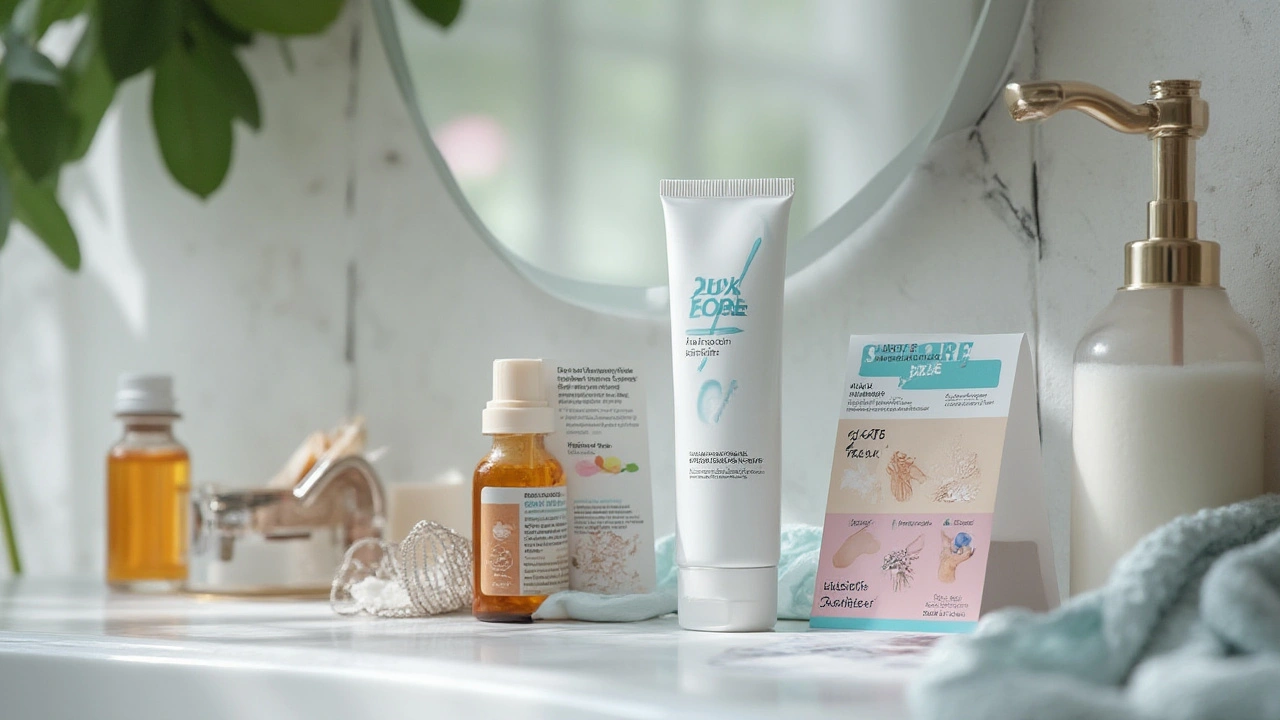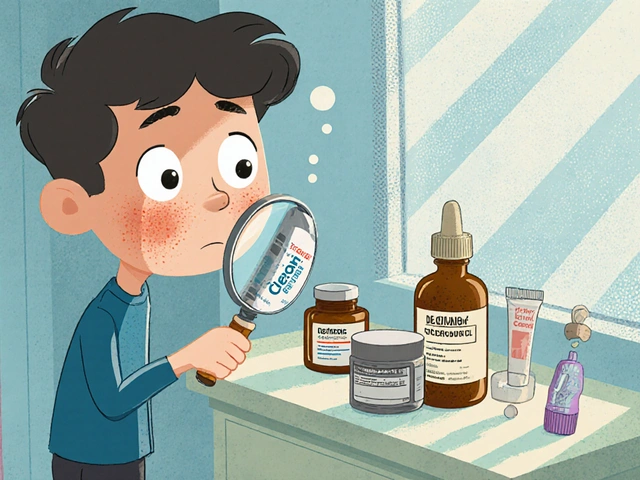Eczema Treatment: Quick Relief and Long‑Term Solutions
If your skin feels dry, itchy, and inflamed, you’re probably dealing with eczema. It’s a common skin condition that can flare up anytime, but the good news is there are plenty of ways to calm it down and keep it from coming back. Below you’ll find the most useful over‑the‑counter products and easy home remedies that actually work.
Over‑the‑Counter Options that Work
First, grab a gentle cleanser. Look for fragrance‑free, soap‑free formulas—something labeled “for sensitive skin” or “hypoallergenic.” These won’t strip your skin’s natural oils.
Next, moisturize while your skin is still damp. Thick creams or ointments with ingredients like ceramides, glycerin, or petrolatum seal in moisture better than lotions. Apply a generous layer at least twice a day, and right after a bath.
For flare‑ups, a low‑strength hydrocortisone cream (1%) can reduce redness and itching. Use it only on the affected spots and follow the label—usually no more than a week without a doctor’s okay.
If you need stronger relief, ask a pharmacist about over‑the‑counter antihistamines such as cetirizine or loratadine. They calm the itch from the inside and are safe for most adults.
Finally, don’t forget sunscreen. UV rays can trigger eczema, so choose a mineral sunscreen with zinc oxide or titanium dioxide and apply it every morning.
Home and Natural Remedies
Many people swear by oatmeal baths. Add a cup of finely ground colloidal oatmeal to warm bath water, soak for 15‑20 minutes, then pat dry and moisturize. The oatmeal soothes inflammation and reduces itching.
Coconut oil is another go‑to. It’s packed with fatty acids that restore the skin barrier. Warm a spoonful and massage it into clean skin after a shower.
For a quick anti‑itch fix, try a cool compress. A wet washcloth kept in the fridge for a few minutes can numb the area and lower the urge to scratch.
Diet can play a subtle role, too. Some eczema sufferers notice fewer flare‑ups when they cut back on sugary snacks and processed foods. Adding omega‑3‑rich foods like salmon, walnuts, or flaxseed may help calm inflammation.
Keep a symptom diary. Write down when flare‑ups happen, what you ate, and any new products you used. Patterns often emerge, making it easier to avoid triggers.
Remember, eczema varies from person to person. If over‑the‑counter creams and home tricks aren’t enough, schedule a visit with a dermatologist. Prescription options, phototherapy, or newer biologic drugs can provide stronger control.
Bottom line: start with a gentle cleanse, lock in moisture, treat flare‑ups quickly, and use soothing home methods to keep itching at bay. Consistency is key—stick to a daily skin‑care routine and you’ll notice fewer red patches and smoother skin in no time.
Aristocort: Uses, Effects, and Helpful Tips for Safe Corticosteroid Treatment
Unlock the facts about Aristocort cream: what it treats, how it works, tips for safe use, real risks, and key stats you should know before starting any corticosteroid.





